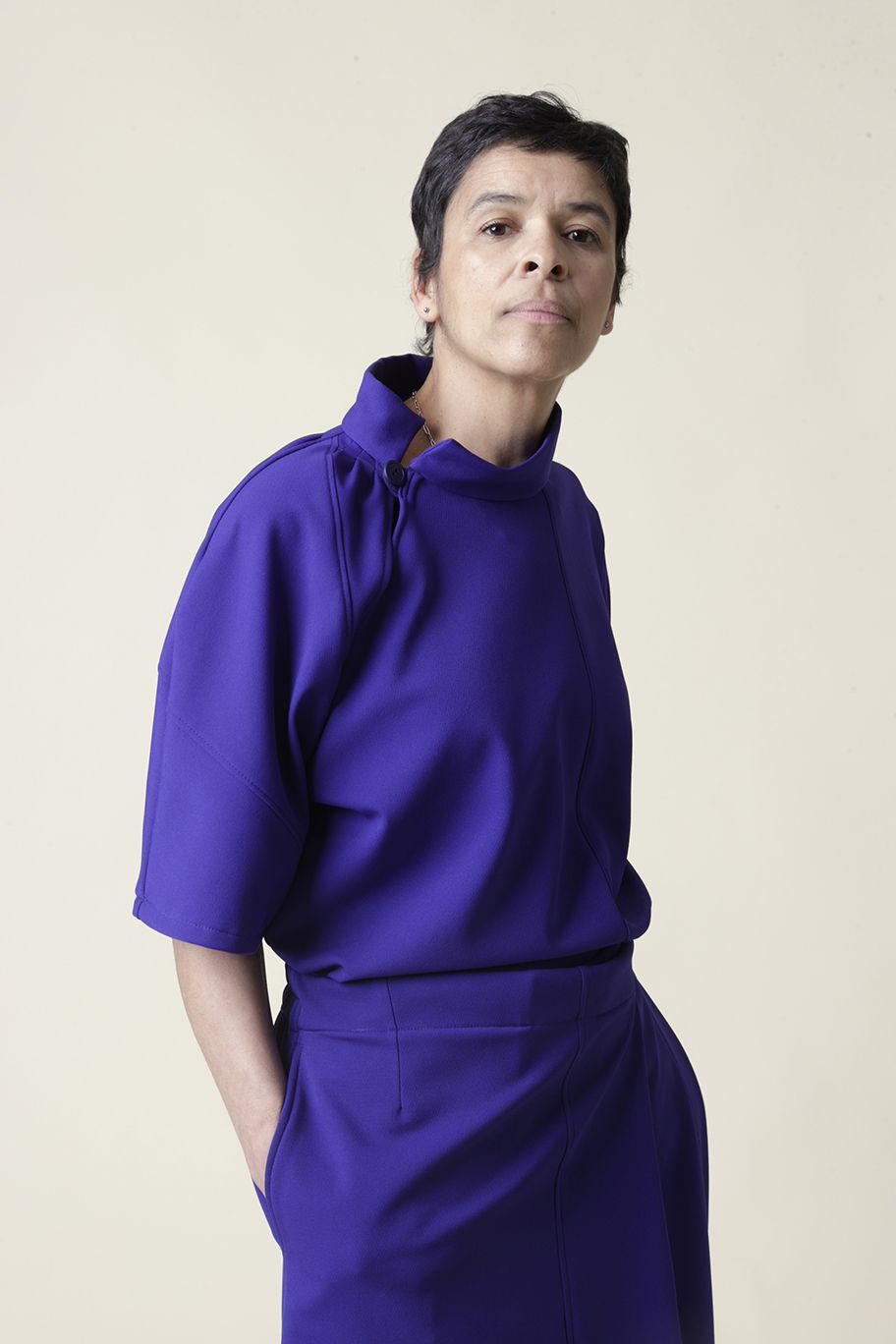If the term ‘quiet luxury’ has been trending over the past few months, minimalism has nevertheless always been part of the vocabulary of several Belgian designers that seem to appreciate key notions of timelessness, discretion and functionality. Véronique Vandewalle happens to be one of them, and her garments emphasize the importance of comfort and simplicity, combined with the inspiring -and communicative- power of color.
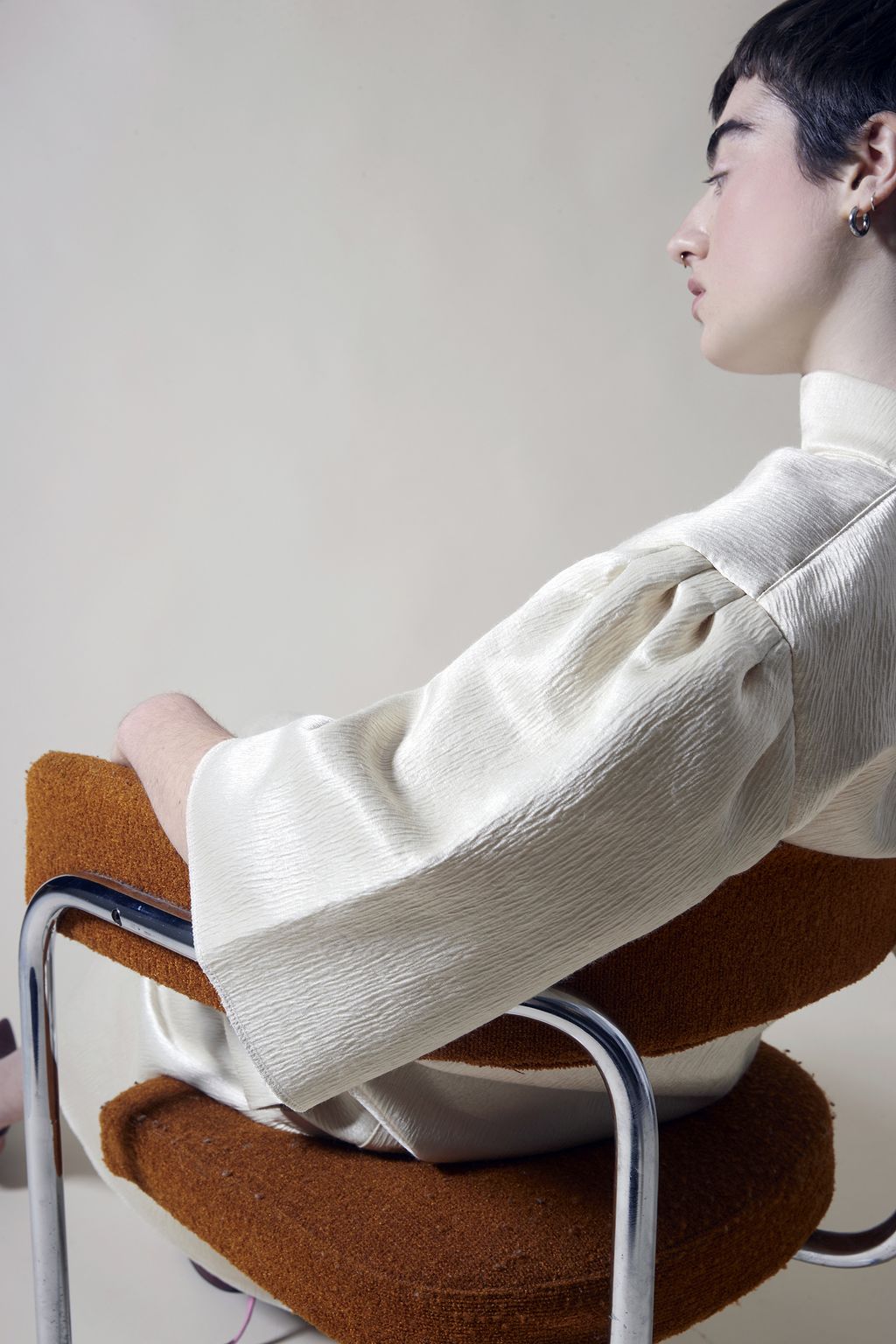
Vandewalle is part of a generation of creative minds for whom the environment and sustainability truly matter. Bringing back fashion to a human level, her collections are designed in Brussels and structured around capsules, which are made out of deadstock and repurposed materials. Instead of changing her aesthetics every 6 months, Vandewalle is more interested in perfecting her own idea of style, reworking her best-selling pieces while refining her signature silhouette.
We caught up with the talented designer to discuss her creative process, why she decided to launch her own brand in a rather competitive market, and how her eponymous line addresses key issues of waste and overconsumption in fashion.
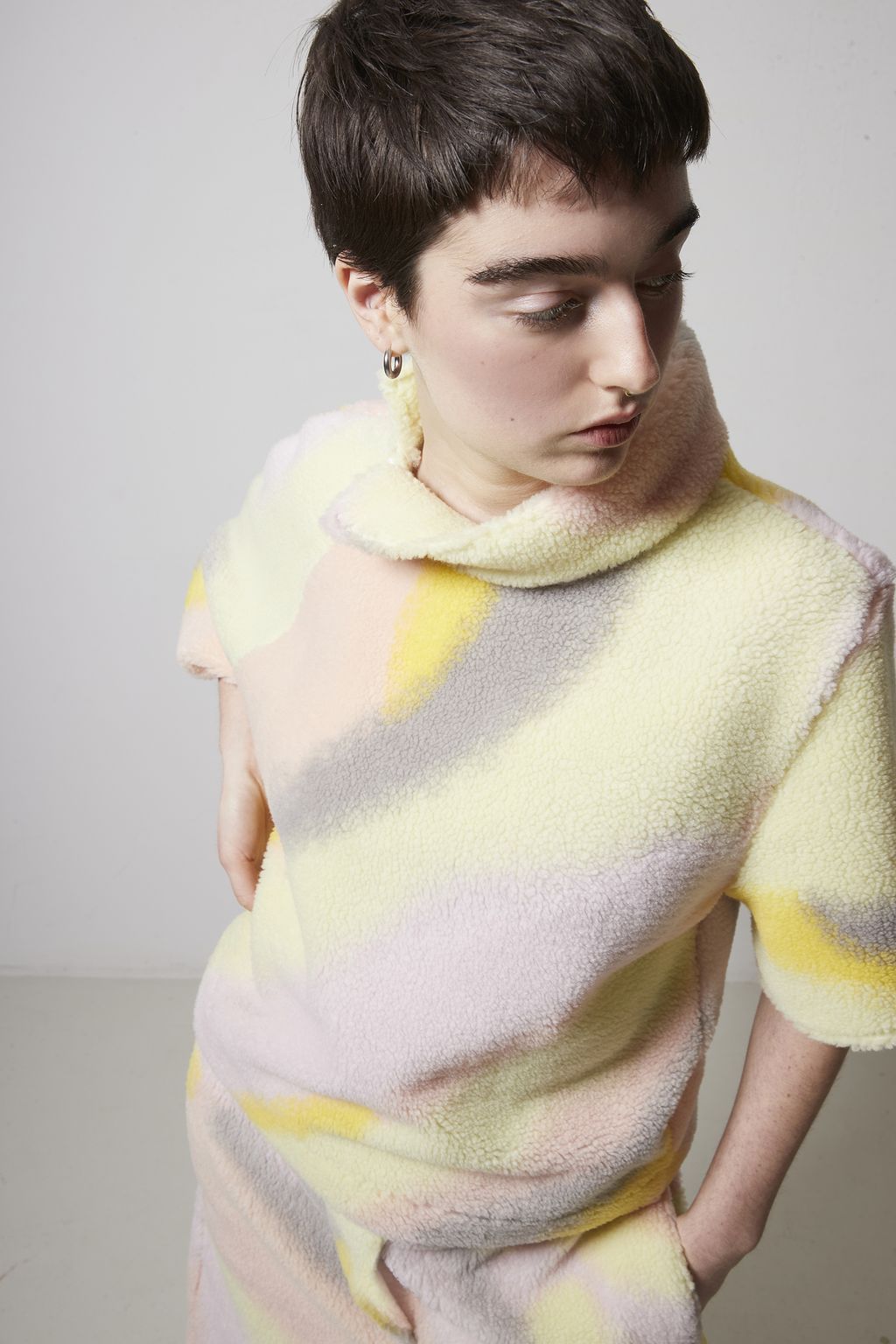
Avez-vous toujours travaillé comme styliste ?
Non. J’étais graphiste indépendante, mais en 2010 j’ai commencé à apprendre la couture et le stylisme. Je peux ainsi passer de la conception à la fabrication d’un modèle en toute autonomie, ce qui me permet de travailler de manière indépendante.
Quand avez-vous lancé votre propre marque ?
J’ai lancé ma marque éponyme en 2022. J’ai profité du temps à ma disposition pendant la pandémie pour affiner mon projet, ce qui a été utile à bien des égards.
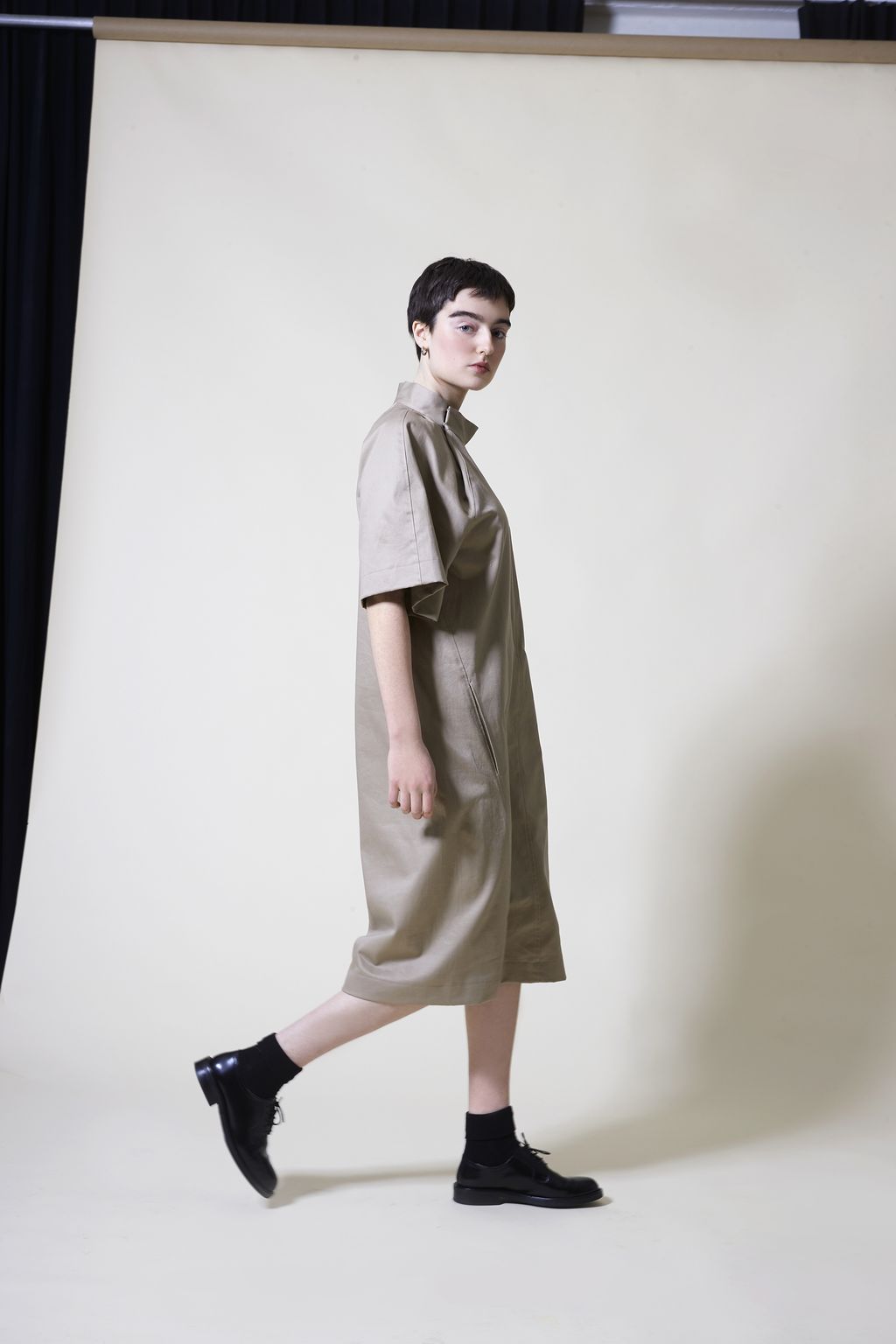
For many working in the fashion industry, the pandemic seemed like a chance to rethink things and also change the way fashion was made. Today, when you see the growing success of a fast fashion brand like Shein, you can’t help but wonder if anything actually changed.
It is awful that brands like Shein continue to grow, but I also believe that part of the population will not consume such brands. Many people are in fact educating themselves while looking for sustainable alternatives. At the same time, fast fashion exploits the aspirational nature of this industry by using seductive imagery, which is as striking as the best designer campaigns. Some people feel that they should have the right to consume low-priced fashion whenever they want and they don’t want this so-called ‘freedom’ to be taken away from them.
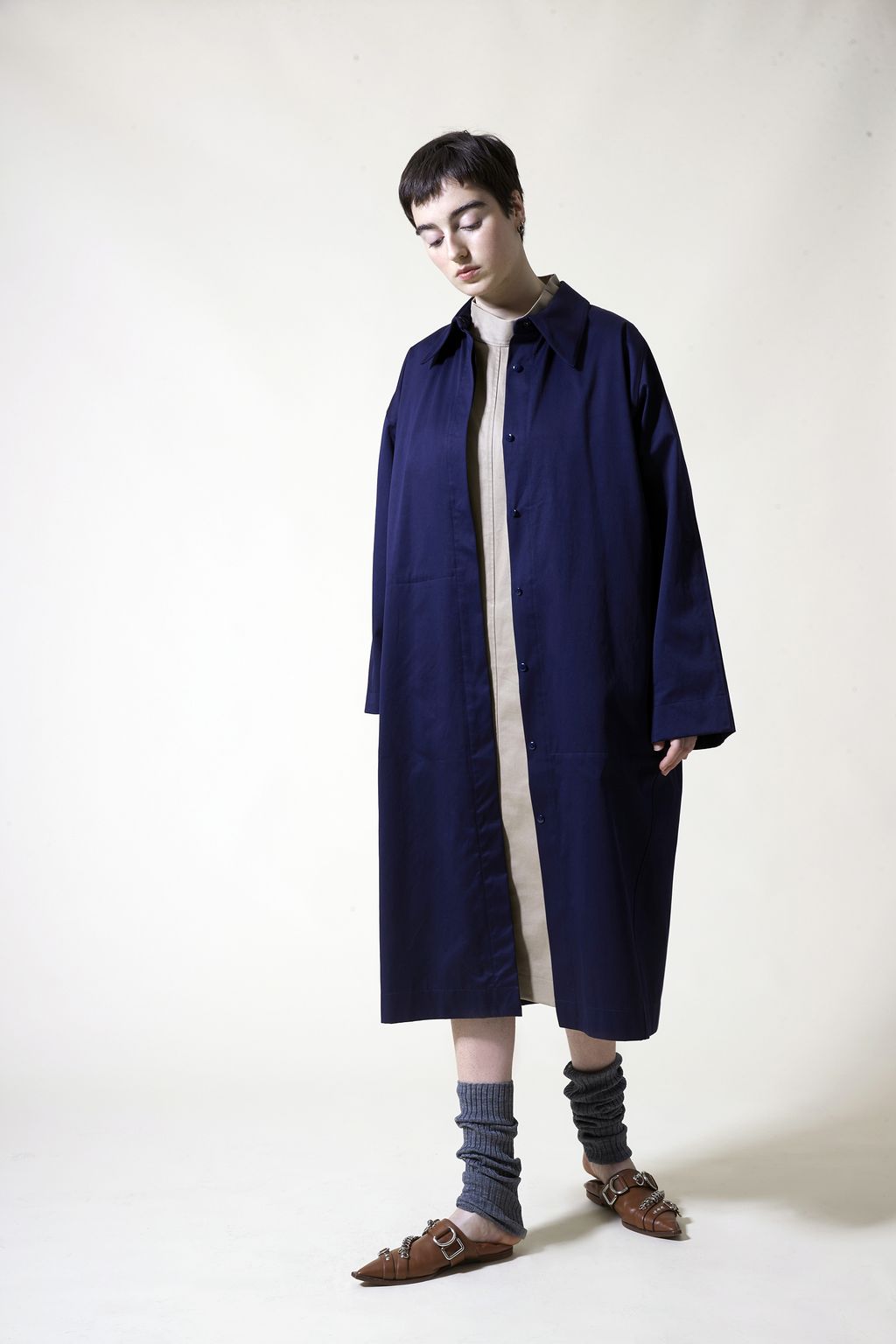
It is indeed a complex issue, but people could also consume less -and better- when it comes to clothes.
I was looking for a brand that would be sustainable, but also have strong style and a desirable point of view. At that time, things were either affordable and ugly or interesting and overpriced when it came to sustainable lines. 10 years ago, I started working on the idea of making my own wardrobe, and the feedback I got from family and friends was very positive. That encouraged me to think about launching my eponymous brand. Then I met Isabelle De Vos, a fashion consultant, and we started working together on my line.
The womenswear market is quite saturated. What motivated you to launch your own brand?
I noticed that people born in the late 70s and early 80s were less inclined to consume sustainable products, and I saw this as an opportunity. I would like to encourage that generation to change the way they buy things and hopefully educate them through my clothes and design approach. I do have older clients buying my clothes obviously, but convincing so-called ‘Generation X’ felt like a great challenge.
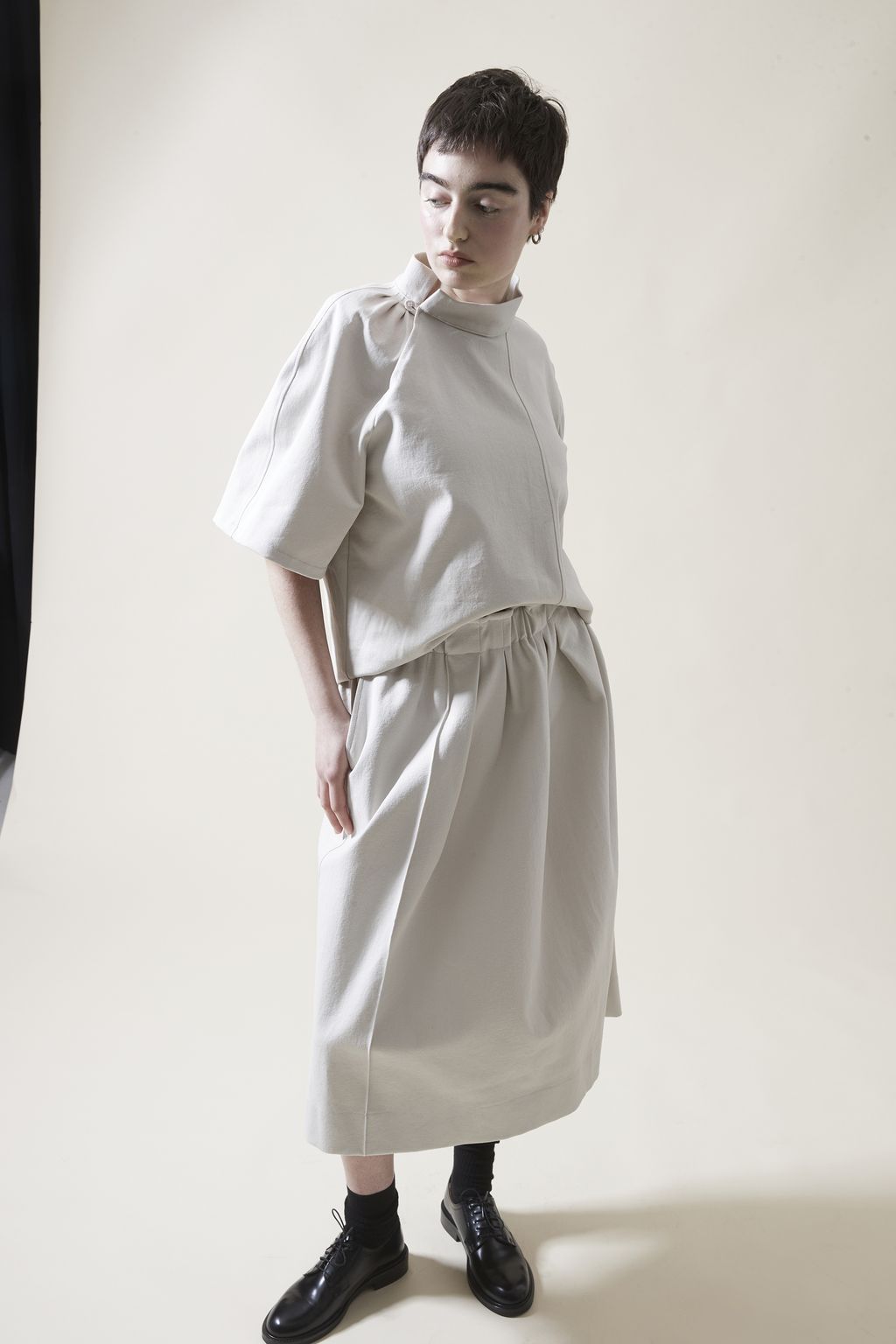
Do you envisage yourself as a minimalist?
I’d rather talk about playfulness and timelessness when it comes to my own style. I’m passionate about our bodies and the fact that nobody is completely symmetrical. In fact, asymmetry tends to define us as human beings, which is the reason why you will find asymmetrical shapes and details on my pieces. These details are not always obvious, but you do notice them.
That’s fascinating. In my opinion, your clothes also feel quite sculptural and strict, almost like a daily uniform.
I do like things to look sharp, I guess. I only work with high-quality materials that come from deadstock. Those fabrics were often used by prestigious designers, so I’m deeply aware of their provenance and want to respect the true nature of the material. I value comfort and protection as well. Women should feel at ease and free to move the way they wish while wearing my pieces.
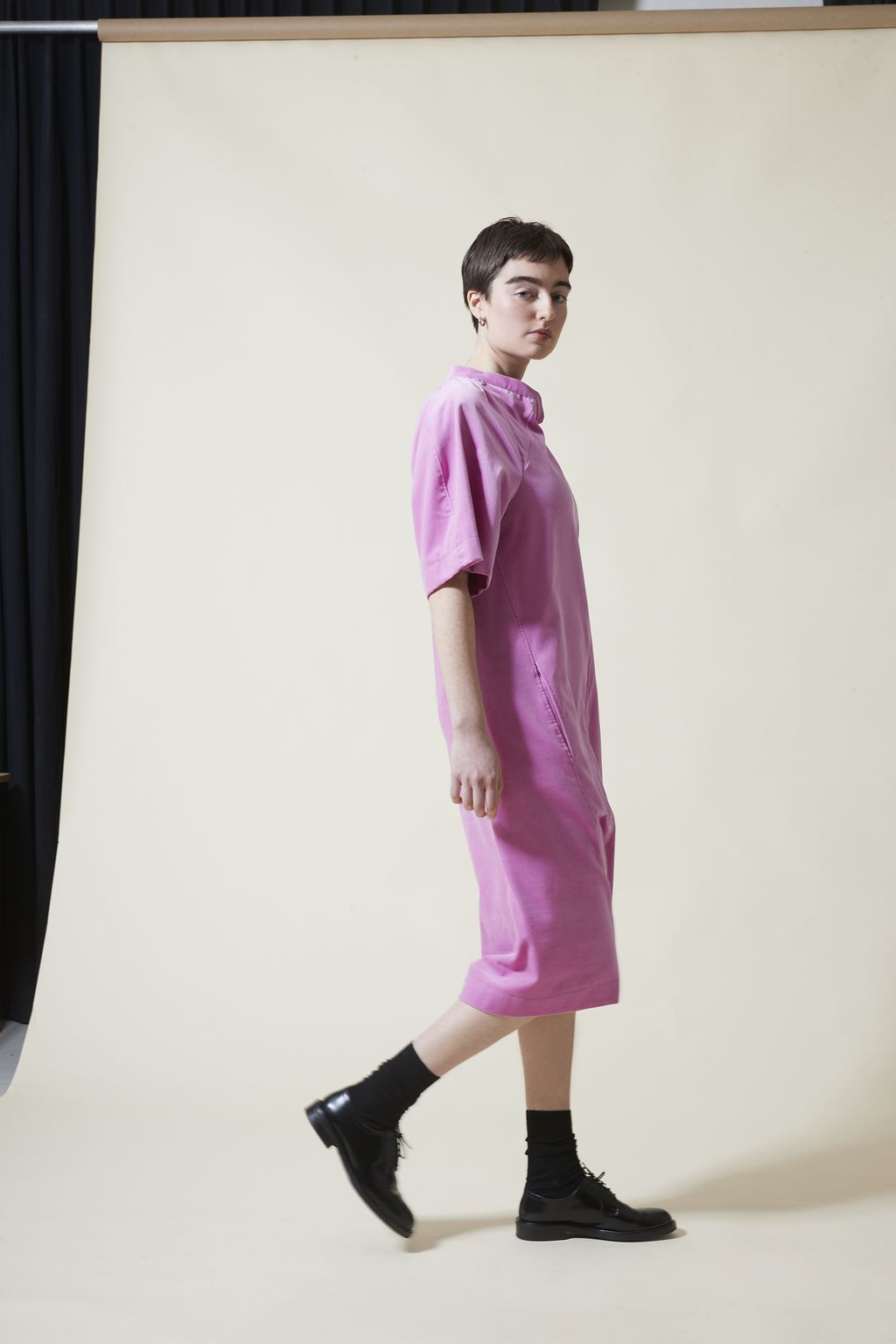
Working with limited editions only, how do you handle the wholesale part?
For the time being, we are selling at Suite in Ghent and Vêtue in Brussels. It’s more of an investment working with me than more classic brands. My sizing is different, too, and the buyer needs to be able to explain the collection the right way to their staff.
What is your key focus at the moment and how do you see the future of your brand?
In the near future, I would like my brand to grow, but the idea of being local truly matters to me. I would also like to be able to spend more time on design, develop my stockists, as well as the online store.
